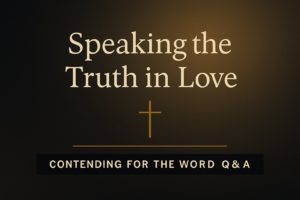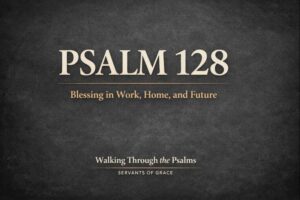⏱️ Estimated Reading Time: 4 min read
If we shadows have offended,
Think but this (and all is mended)
That you have but slumbered here,
While these visions did appear.
–Puck’s Epilogue, A Midsummer’s Night Dream
It was only a dream.
This is how Shakespeare decided to reconcile the chaos he created in the wonderfully entertaining tale of a different kind of star-crossed lovers in A Midsummer’s Night Dream. In his play, devious fairies deceive and manipulate a cast of would-be spouses causing confusion and mayhem—and the tumult is what makes this a comedy. Just when you think it cannot get any worse, it does. With so much upheaval, the reader wonders how, or if ever, restoration of order will occur.
In the end, order does come, but not through careful exposition or reconciliation, but rather through Shakespeare pressing a literary reset button—it was all just a dream. In our day, as we watch as our culture disintegrates into what David Brooks calls, in Shakespearean fashion, “weaponized buffoonery”, we know that this tumult doesn’t come with any reset button. We may hope and wish that it is all just a dream, but it isn’t and that kind of hope is always misplaced. Believers in Christ Jesus, however, need not ever wring our hands and wish to dream away reality. Instead of escaping, we are to engage, and not with louder rhetoric or weaponized trivialities, but rather with hope rooted in truth.
In the midst of the physical destruction of Jerusalem, centuries ago, the author of Lamentations rightly lamented with sorrow the turning upside down the city of the people of God. Yet, at the core of his somber despair, he remembers what is true, and that ray of sunshine in the darkness makes all the difference. Just before Lamentations gives us the hymn-worthy and life-giving words of the greatness of God’s faithfulness and the constancy of daily grace and mercy from Him (Lamentations 3:22-24), the author explains that his hope amid destruction exists because he remembers these things that are true about God: “But this I call to mind, and therefore I have hope” (Lamentations 3:21). God, then, as now, is and was the same (Hebrews 13:8). He does not change (James 1:17).
Yet, the same is true of humanity and the culture we inhabit. Without the intersection and intervention of God’s new mercies, both redemptive and restraining, we are desperately sick (Jeremiah 17:9) and prone to wander and to war. The nations will always rage and plot (Psalm 2). Yet, God still laughs—and we should too.
Into these days, Christians should speak truth. These are times for crafting and signing statements. These are days for determining what it means to stand first with brothers and sisters in Christ (Galatians 6:10) and our culture of comforts second. As heirs of Carl F. H. Henry, our consciences should remain uneasy, and not content, as we carry out this confronting work of standing on and for biblical truth. Yet, even Henry, 70 years ago now, as he called evangelicals to lament the downgrade of society, he thought they should do so with a smile:
“The message for a decadent modern civilization must ring with the present tense. We must confront the world now with an ethics to make it tremble, and with a dynamic to give it hope.” [1]
We live in dark and uncertain days, where Mr. Shakespeare’s literary reset button does not exist. Yes, the world is wrong-side up and our hearts naturally along with it. But, as we lament these things, we should also call this to mind: God has not changed and His mercies are still new every morning even as we await our Blessed Hope, the Lord Jesus, who gave himself to redeem us (Titus 2:13-14). Believers in Christ uniquely and always have this message to share.
So as we find ourselves asking, “Is all this a dream?” We need to smile more as we say “No, it is far worse…and better.” Not only that, but we rejoice in our sufferings, knowing that suffering produces endurance, and endurance produces character, and character produces hope, and hope does not put us to shame, because God’s love has been poured into our hearts through the Holy Spirit who has been given to us (Romans 5:3-5).
References:
- Carl F. H. Henry, The Uneasy Conscience of Modern Fundamentalism (Wheaton: Crossway, [1947], 2003), 53-55.
Jason Duesing serves as the academic Provost and Associate Professor of Historical Theology at Midwestern Baptist Theological Seminary. He came to MBTS after serving for more than a decade on the administrative leadership team and faculty at Southwestern Baptist Theological Seminary in Fort Worth, Texas. Duesing earned his Ph.D. in Historical Theology and Baptist Studies from Southwestern Seminary in 2008. He also holds a M.Div. from Southeastern Seminary and a B.A. in Speech Communications from Texas A&M University in College Station.
Duesing serves as a research fellow for the Ethics and Religious Liberty Commission of the Southern Baptist Convention, on the board of directors for the Council on Biblical Manhood and Womanhood, academic editor of the Midwestern Journal of Theology, and general editor for For the Church resources. He is also a member of the Evangelical Theological Society and regular contributor to Baptist Press. Duesing is married to Kalee, and together they have four children: Gracyn, Ford, Lindsey, and George.




